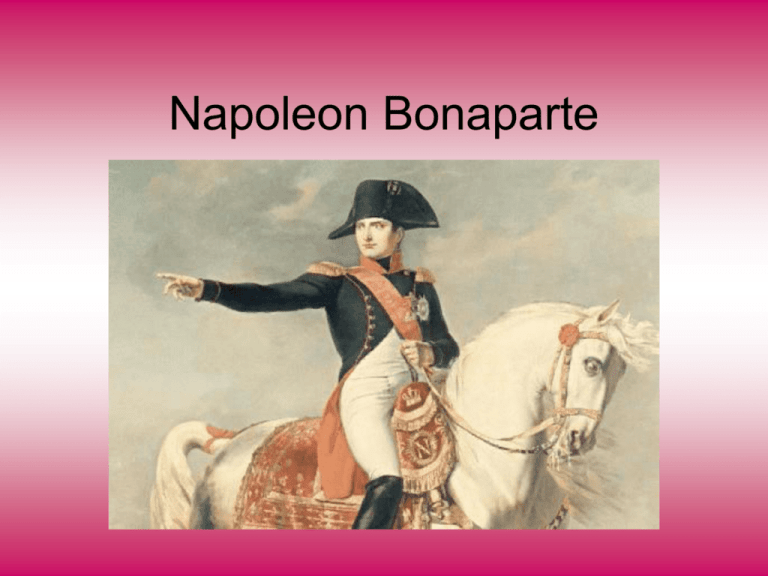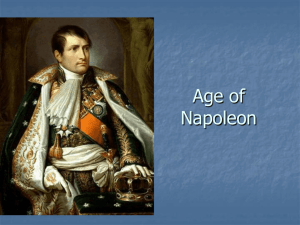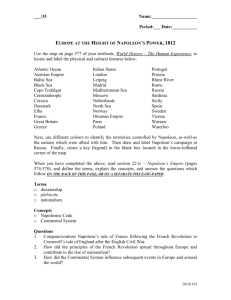Napoleon Bonaparte
advertisement

Napoleon Bonaparte Background • Born on island of Corsica, off the coast of Italy • Sent to military school at a young age • Led defense of National Convention delegates in 1795, hailed as savior of French Republic • 1796 appointed by Directory to lead army into battle in Italy Napoleon Seizes Power • 1799, Directory had lost control. Napoleon used his army to stage a coup d’etat—violent overthrow of the govt • Named First Counsel • Britain, Austria, and Russia quickly joined to try to overthrow Napoleon Legitimacy • 1800—plebiscite (vote of people) strongly supported Napoleon— wanted strong leadership • Kept many of the revolutionary changes • Strengthened economy • Got rid of corrupt officials • Set up lycees, govt run schools • Improved public services Changes Instituted • Signed Concordat, an agreement with Catholic Church, giving some rights and power back to Church, pleased many • Established Napoleonic Code— established uniform laws, but limited some individual liberty Napoleon the Emperor • Crowned himself Emperor in 1804— attempt to show himself more powerful than the church Empire Building • Wanted to control Europe and parts of U.S. • After loss of Haiti, sold Louisiana Territory to U.S. to finance operations ($15 M) • Set out to conquer Europe • Successful in battles (Austerlitz) • Forced other rulers to sign peace treaties • By 1812, controlled most of Europe Napoleon’s Errors • Set up blockade to cut Britain off (Continental System)—intended to hurt Britain, since he couldn’t beat them • Allies refused to follow • Britain successfully overcame • Proved to be his downfall Errors, cont. • Peninsular War— invasion force sent through Spain to Portugal—angered Spain & Catholics • Napoleon replaced Spanish king with his brother • Resulted in guerrilla war, very costly Errors, cont. • Invasion of Russia— 1812 • Russians employed scorched earth policy—left nothing behind • Russian winter destroyed Napoleon’s army, along with Russian attacks during French retreat Downfall • After Russia, he had far fewer troops, and army was inexperienced • Defeated at Leipzig, opponents captured Paris • April 1814, surrendered and gave up throne • Exiled to Elba The Hundred Days • Returned from exile 1815, to much support, quickly became Emperor again • Final defeat at Waterloo • Return to power lasted 100 days • Napoleon exiled to St. Helena, died in 1821




